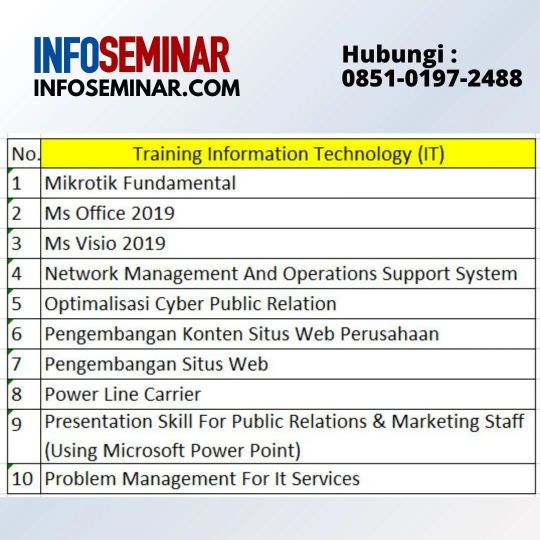#supportsystem
Text
40 notes
·
View notes
Text
🌟 Dealing with Negative People: Protecting Your Energy and Maintaining Positivity ✨🌈
Encountering negative people can be challenging, but it's important to remember that you have the power to protect your energy and maintain your positivity. Here are some strategies to help you navigate interactions with negative individuals:
🌟 Set Boundaries: Establish clear boundaries to protect your well-being. Determine what you will and will not tolerate in terms of negativity, and communicate your boundaries assertively and respectfully. This will help you maintain your peace of mind and prevent negative energy from infiltrating your space.
🌟 Practice Empathy: While it may be difficult, try to empathize with negative individuals. Recognize that their negativity may stem from their own personal struggles, insecurities, or past experiences. Cultivating empathy can help you detach emotionally and respond with compassion rather than absorbing their negativity.
🌟 Limit Exposure: If possible, limit your exposure to negative people. Surround yourself with positive influences and spend time with individuals who uplift and inspire you. This will create a supportive and nurturing environment that helps counterbalance the negativity you may encounter elsewhere.
🌟 Focus on Positivity: Shift your focus to positivity by cultivating gratitude, engaging in activities that bring you joy, and practicing positive self-talk. Redirecting your attention to the positive aspects of your life will help you maintain a resilient and optimistic mindset.
🌟 Don't Take it Personally: Remember that negativity from others is often a reflection of their own internal struggles and has little to do with you personally. Avoid internalizing their negativity and instead choose to prioritize your own well-being and emotional health.
🌟 Practice Self-Care: Engage in regular self-care activities that replenish your energy and nurture your well-being. This may include activities such as meditation, exercise, spending time in nature, journaling, or engaging in hobbies that bring you joy. Prioritizing self-care will help you maintain a positive mindset and build resilience.
🌟 Seek Support: Surround yourself with a supportive network of friends, family, or a community that uplifts and encourages you. Having a support system can provide you with the emotional support and guidance needed to navigate challenging situations with negative people.
🌟 Remember, you have the power to choose how you respond to negativity. By implementing these strategies and prioritizing your well-being, you can protect your energy, maintain your positivity, and create a more uplifting and harmonious life. ✨🌈🌟
#NegativePeople#PositiveMindset#Boundaries#Empathy#Positivity#SelfCare#SupportSystem#Resilience#FlourishWithFreda
8 notes
·
View notes
Text
Navigating the Mind
I recently had the chance to dive into the world of mental health and occupational therapy through the lens of the movie "A Beautiful Mind" (2001). It's incredible how a film can take you on an emotional rollercoaster and leave you with profound insights.
The movie tells the story of John Nash, a brilliant mathematician grappling with schizophrenia. His journey, filled with delusions and hallucinations, paints a vivid picture of the complexities of mental health conditions. It's safe to say that watching Nash's struggles and triumphs has forever changed the way I view this field.
Nash's life, dominated by his mental health condition, serves as a stark reminder of the occupational barriers individuals with mental health challenges face. As an occupational therapy (OT) student, I've come to understand the crucial role we play in breaking down these barriers. Our mission is to help people like Nash regain their independence and find meaning in their daily lives. "A Beautiful Mind" reinforced the idea that there's no one-size-fits-all approach – customized interventions are key.
In my own experiences working with clients battling mental health issues, I've seen firsthand how conditions like schizophrenia can lead to social isolation and make everyday tasks seem insurmountable. One client, much like Nash, struggled with auditory hallucinations that disrupted their ability to concentrate on basic activities. To help them, I had to adopt a holistic approach tailored to their unique needs.
The film simultaneously challenged and reinforced my understanding of mental health and occupational therapy. It reiterated that mental health conditions are intricate and can significantly impact a person's life. It underscored the importance of empathy and individualized care because everyone's journey is uniquely their own.
On the flip side, it pushed me to ponder the limitations of medical models in addressing mental health. Nash's recovery wasn't just about medication; it was about social support and his own resilience. This aligns with the holistic nature of occupational therapy, where we consider not only the physical but also the psychological and social aspects of well-being.
Throughout the movie, I couldn't help but wonder about the role OT could have played in Nash's life. We're trained to assess and address the impact of mental health conditions on daily activities. In Nash's case, an OT could have helped him develop coping strategies, manage symptoms, and adapt his environment to support his goals.
The film also shed light on the stigma surrounding mental illness. As OT students and future practitioners, we've seen how the lack of social support can worsen mental health issues. Part of our job is encouraging clients to connect with supportive friends, family, or support groups. It's a way to break down stigma and promote understanding, creating safe spaces for those battling mental health challenges.
Watching "A Beautiful Mind" has truly transformed my perspective as an OT student. It emphasized the importance of empathy, individualized care, and tackling occupational barriers in mental health rehabilitation. As I continue on my occupational therapy journey, I'm dedicated to advocating for the needs of individuals facing mental health challenges and helping them find meaning in their lives.

American Occupational Therapy Association's (AOTA) official website's mental health resources page - www.aota.org/mental-health-resources
A Beautiful Mind" a video where John Nash experiences a particularly challenging moment due to his schizophrenia https://youtu.be/ehhy-_Cg4QU?si=cK9QWvqM-pGacnxc
References:
1. American Occupational Therapy Association. (2014). What is occupational therapy? Retrieved from https://www.aota.org/About-Occupational-Therapy.aspx
2. American Occupational Therapy Association. (2021). Occupational therapy practice framework: Domain and process. American Journal of Occupational Therapy, 75(Supplement_2). https://doi.org/10.5014/ajot.2021.75S200
Goffman, E. (1963). Stigma: Notes on the management of spoiled identity. Prentice-Hall.
#MentalHealth#OccupationalTherapy#Schizophrenia#StigmaFree#MentalHealthAwareness#RecoveryJourney#OTStudent#Destigmatization#Wellness#Inclusion#Empathy#SupportSystem#Resilience#PersonalGrowth#OccupationalTherapist#MentalHealthRecovery#Healthcare#AwarenessMonth#EndTheStigma
4 notes
·
View notes
Text
Finding and nurturing safe and affirming spaces helps to keep us grounded and comforted in knowing we are not alone.
There are a variety of virtual, free, and gender-affirming support groups included in the Black Remote She resource hub to offer support to our community.
If you’ve felt hesitant to tap into your support systems or an urge to feel supported in some way, I hope these groups serve as gentle reminders that you are deserving of support, love, and care. Always.
Learn about upcoming sessions and view the full list below 👇🏽
https://www.blackremoteshe.com/resource-hub/gender-affirming-support-groups
#genderaffirming#gender justice#black remote she#support#support groups#supportsystem#lgbtq community#queer community#trans community#grieving#communitysupport
2 notes
·
View notes
Text
Stop Dieting, Lose Weight, & Live Happier
youtube
#stressmanagement#relaxation#exercisemotivation#timemanagement#supportsystem#mentalhealthmatters#selfcare#wellness#fitnessmotivation#lifestyle#mindfuleating#intuitiveeating#foodfreedom#mindfulnessmatters#slowdown#listenyourbody#healthylifestyle#eatwithpurpose#healthyliving#wellnesstips#Youtube
3 notes
·
View notes
Text
Your potential is limitless. Don't let anyone tell you otherwise. 💪 #YouGotThis
#parenting#confidentmom#empoweredmoms#busy moms#self growth#momlife#motherhood#faithandfamily#momprenuer#Godfirst#Family#Happieness#Balancedlife#Empoweryourself#mindsetmatters#thrivetogether#Supportsystem
5 notes
·
View notes
Photo

Info Seminar Training Information Technology (IT) di Jakarta, Bandung, Yogya dan kota lainnya. Training Information Technology tersedia public training dan in house training. 1. Mikrotik Fundamental 2. Ms Office 2019 3. Ms Visio 2019 4. Network Management And Operations Support System 5. Optimalisasi Cyber Public Relation 6. Pengembangan Konten Situs Web Perusahaan 7. Pengembangan Situs Web 8. Power Line Carrier 9. Presentation Skill For Public Relations & Marketing Staff (Using Microsoft Power Point) Informasi training: WA: 0851-0197-2488 Jadwal training lengkap: https://www.informasi-seminar.com #technology #teknologiinformatika #mikrotik #msoffice2019 #msvisio2019 #network #supportsystem #cyber #publicrelation #situsweb #kontensitusweb #web #linecareer #presentationskill #marketingstaf #microsoftpowerpoint #jadwalpelatihan2023 #manager #bisnis https://www.instagram.com/p/CrI_wYGpaFX/?igshid=NGJjMDIxMWI=
#technology#teknologiinformatika#mikrotik#msoffice2019#msvisio2019#network#supportsystem#cyber#publicrelation#situsweb#kontensitusweb#web#linecareer#presentationskill#marketingstaf#microsoftpowerpoint#jadwalpelatihan2023#manager#bisnis
5 notes
·
View notes
Text
By Following This Method, You Too Can Quit Drugs
Quitting drugs is a challenging journey, but with the right approach, anyone can overcome addiction. This article provides a comprehensive guide on how to successfully quit drugs by following a proven method. By following these steps, you can regain control of your life and build a brighter future free from substance abuse.
#DrugRecovery AddictionHelp Sobriety MentalHealth SupportSystem HealthyCoping RelapsePrevention Motivation DrugFreeLife RecoveryJourney#DrugRecovery#AddictionHelp#Sobriety#MentalHealth#SupportSystem#HealthyCoping
2 notes
·
View notes
Text
no more outcast loner protagonist, just an awkward guy, with a best friend/cousin, a goofy ghost bf, and two massive dogs
4 notes
·
View notes
Text
Breaking Free: Lessons from Those Who Escaped Toxic Love 💔

What it is to be in a horrible relationship is a big hole through which there is no exit. However, the next stories are illuminating and subsequently prove that they are nothing like this. Here are some powerful insights from those who found the courage to walk away:Here are some powerful insights from those who found the courage to walk away:
Self-Love is Non-Negotiable: Be involved. You are a person whose value of people, respect, and fine things cannot be underestimated.Don't settle for less.
Boundaries Are Key: Stick to your guns and don't back down regardless of peer pressure. You have to set the limits from the very beginning and never back down.Your well-being comes first.
Lean on Your Tribe: You can as well look for friends who would motivate and those who will be with you down season and high season.You're not alone.
Embrace Growth: Living through misfortunes, and even confronting them, can transform us and instill knowledge that remains with us forever. Take your problems to the mountains and use them to grow stronger and wiser.
Focus on Healing: Heal and care for yourself, allow mental, emotional, and physical detoxification.You deserve to thrive.
Forgive Yourself: Drop guiltiness or any critical self-questioning. Seen that the breaking up of a toxic relationship doesn’t define you as a weak person is a great show of strength.
Celebrate Freedom: Embrace your freedom and make the most out of this new stage in your life. Life is full of opportunities to learn to be happy and to share your joyful moments.
However, make sure leaving such a toxic relationship is the first move you take as your method to regaining your power and redeeming your life. It is you who has been fighting, who is brave, even when it is too hard.💪
Source: Got Out Of A Rotten Relationship
#ToxicRelationship#BreakFree#SelfEmpowerment#MovingOn#LoveYourself#SelfCare#HealingJourney#Empowerment#SelfLove#YouDeserveBetter#Boundaries#SelfRespect#SupportSystem#FriendshipGoals
0 notes
Text
Unveiling the Secrets of “The Divine Prayer”: Empower Your Life

Embark on a mystical journey with “The Divine Prayer,” a beacon of spirituality where ancient wisdom meets the art of manifestation, guiding you toward fulfillment in the present day. This prayer isn’t just a collection of words; it’s a channel for accessing the boundless energies of the universe, offering a pathway to realizing your deepest desires and dreams.
#DivinePrayer#Manifestation#Spirituality#AncientWisdom#Fulfillment#Abundance#DreamsComeTrue#ChannelingEnergy#Enlightenment#Transformative#LifeChanging#SatisfactionGuaranteed#RefundPolicy#SupportSystem#Magic#Testimonials#SuccessStories#ExclusiveBonuses#LimitedTimeOffer#Transformation#SpiritualWellness#CreativeGenius#WeightLoss#Opportunity#Empowerment#Inspiration
0 notes
Text
13 notes
·
View notes
Text
Understanding Mental Health: A Guide in Human-Friendly Language
In a world that often feels like it's moving at a hundred miles per hour, it's essential to take a step back and pay attention to something that's often overlooked: mental health. But what exactly is mental health, and why is it so important?
Let's break it down in the simplest terms possible.
What is Mental Health?
Think of your mental health as your emotional and psychological well-being. It's about how you think, feel, and act in different situations. Just like how we take care of our bodies by eating well and exercising, we also need to take care of our minds.
Why Does Mental Health Matter?
Your mental health affects every aspect of your life. It influences how you handle stress, relate to others, and make decisions. When you have good mental health, you can cope with the ups and downs of life more effectively. It's like having a superpower that helps you bounce back from challenges.
Signs of Good Mental Health
Feeling generally happy and content
Having good relationships with friends and family
Being able to handle stress and bounce back from setbacks
Having a sense of purpose and direction in life
Signs of Poor Mental Health
Feeling sad or down most of the time
Withdrawing from friends and activities you used to enjoy
Feeling overwhelmed by stress and unable to cope
Having trouble concentrating or making decisions
Taking Care of Your Mental Health
Just like you take care of your physical health by eating right and exercising, there are things you can do to take care of your mental health too.
Talk About Your Feelings: Don't be afraid to share what's on your mind with someone you trust. It could be a friend, family member, or even a therapist. Talking about your feelings can help you feel less alone and more supported.
Take Breaks: Life can get hectic, so it's essential to take breaks and recharge your batteries. Whether it's going for a walk, listening to music, or practicing mindfulness, find activities that help you relax and unwind.
Stay Active: Exercise isn't just good for your body; it's also good for your mind. Even a short walk or a quick dance around your room can boost your mood and reduce stress.
Eat Well: Eating a balanced diet can have a big impact on your mental health. Try to eat plenty of fruits, vegetables, whole grains, and lean proteins, and limit processed foods and sugary snacks.
Get Enough Sleep: Sleep is essential for good mental health. Try to aim for 7-9 hours of sleep each night and establish a regular sleep routine to help you unwind before bedtime.
Practice Self-Care: Take time for yourself and do things that make you happy. Whether it's reading a book, taking a bubble bath, or spending time with loved ones, prioritize activities that bring you joy.
Remember, it's okay not to be okay sometimes.
Everyone struggles with their mental health from time to time, and that's perfectly normal. The key is to recognize when you're not feeling your best and take steps to support yourself. Whether it's reaching out for help or practicing self-care, there are always things you can do to improve your mental health.
So, let's make mental health a priority and start taking better care of ourselves and each other. After all, a healthy mind is a happy mind!
#Mindfulness#StressManagement#SelfLove#Therapy#SupportSystem#EmotionalHealth#PositiveMindset#AnxietyAwareness#DepressionSupport#WellnessJourney
1 note
·
View note
Text
7 Things To Do When Your Friend Has Cancer
When a friend is diagnosed with cancer, it often feels like the ground disappears beneath your feet. You’re overrun with a sense of helplessness, wanting to do something, anything, to make their battle easier but not knowing where to start. Here’s the thing—small acts of kindness can shine a bright light on their darkest days. Let’s dive into seven heartwarming ways you can be there for your friend and genuinely make a difference.
#CancerSupport#FriendshipMatters#SupportSystem#CancerJourney#StrengthInFriendship#CareAndCompassion#TogetherAgainstCancer#FriendshipThroughCancer#BeingThere#EmpathyAndUnderstanding
0 notes
Link
Creating A Support System: Connecting With Other Remote Working Parents, Building Relationships, And Sharing Tips And Tricks
0 notes
Text

How many times have you said "I'm fine" when asked how you're doing, even though you weren't really fine? It's become such a common automatic response that it's almost meaningless.
We say "I'm fine" for a few key reasons - to avoid burdening others with our problems, to maintain a sense of normalcy or control, or because we don't want to openly admit that we're struggling. It's a polite social nicety meant to end the conversation quickly.
But masking our true emotions with "I'm fine" isn't healthy or helpful long-term. It prevents us from getting actual support when we need it. Others can sense when something isn't really fine, even if we say the words.
The next time someone asks and you're not actually fine, consider opening up just a little. You don't need to dump all your problems on them, but acknowledging "I've been better" or "It's been a tough day" gives the other person space to offer an ear if you do want to talk.
Saying "I'm fine" when we're not can build up over time into feelings of loneliness, stress or depression. Being a little more honest about our emotional state, even if just in small ways, can help us feel less alone and more able to work through what's really bothering us.
#ImFine#MentalHealthMatters#SelfCare#EmotionalHealth#CheckInOnFriends#NormalizeFeelings#ItsOkayToNotBeOkay#HonestyIsHealing#SupportSystem#YouAreNotAlone#SmallActsOfKindness#MentalHealthAwareness#InstillingLightPLLC#CounselinginWestminsterCO#YouAreWelcomeHere#familytherapy#groupcounseling
0 notes